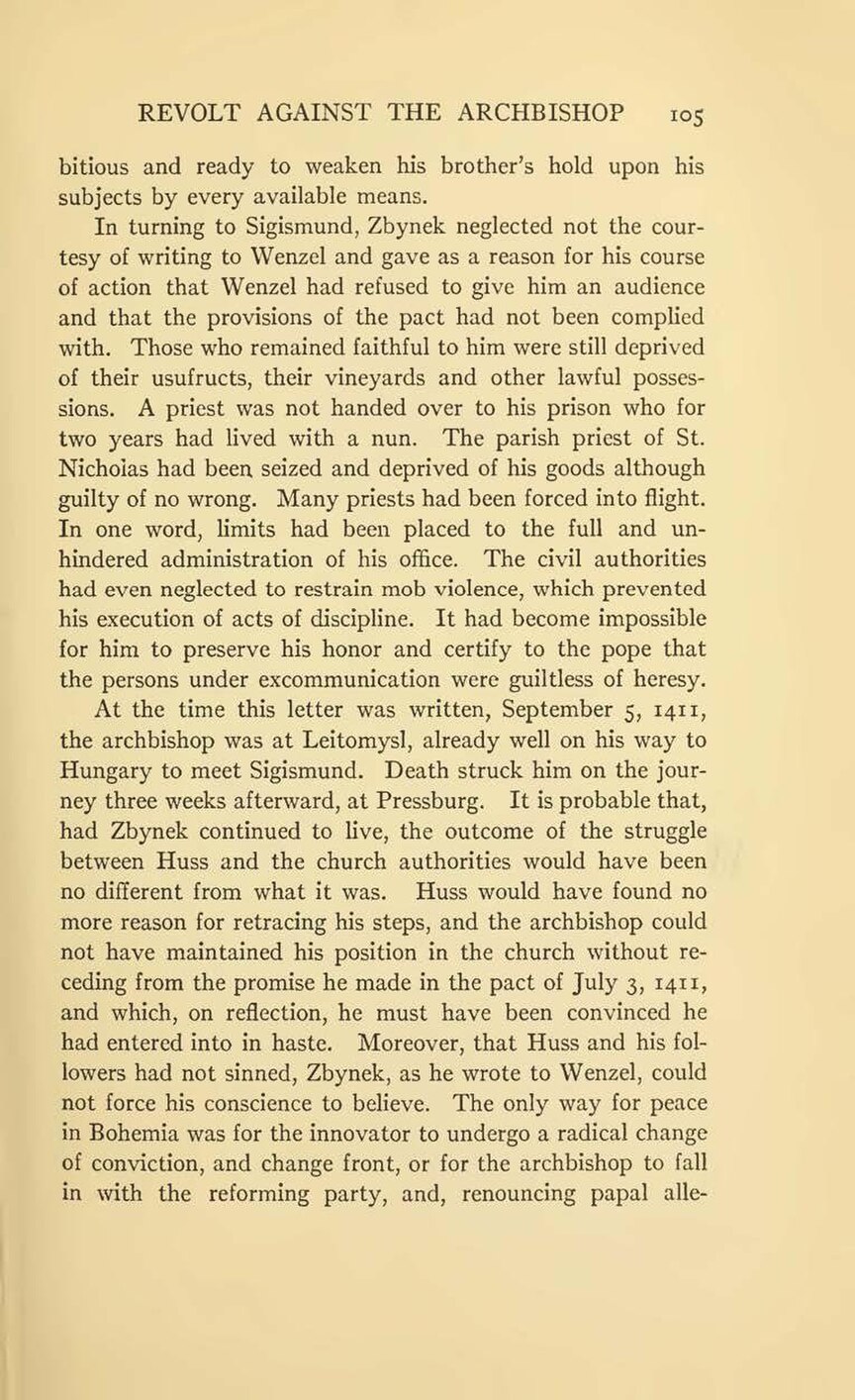bitious and ready to weaken his brother’s hold upon his subjects by every available means.
In turning to Sigismund, Zbynek neglected not the courtesy of writing to Wenzel and gave as a reason for his course of action that Wenzel had refused to give him an audience and that the provisions of the pact had not been complied with. Those who remained faithful to him were still deprived of their usufructs, their vineyards and other lawful possessions. A priest was not handed over to his prison who for two years had lived with a nun. The parish priest of St. Nicholas had been seized and deprived of his goods although guilty of no wrong. Many priests had been forced into flight. In one word, limits had been placed to the full and unhindered administration of his office. The civil authorities had even neglected to restrain mob violence, which prevented his execution of acts of discipline. It had become impossible for him to preserve his honor and certify to the pope that the persons under excommunication were guiltless of heresy.
At the time this letter was written, September 5, 1411, the archbishop was at Leitomysl, already well on his way to Hungary to meet Sigismund. Death struck him on the journey three weeks afterward, at Pressburg. It is probable that, had Zbynek continued to live, the outcome of the struggle between Huss and the church authorities would have been no different from what it was. Huss would have found no more reason for retracing his steps, and the archbishop could not have maintained his position in the church without receding from the promise he made in the pact of July 3, 1411, and which, on reflection, he must have been convinced he had entered into in haste. Moreover, that Huss and his followers had not sinned, Zbynek, as he wrote to Wenzel, could not force his conscience to believe. The only way for peace in Bohemia was for the innovator to undergo a radical change of conviction, and change front, or for the archbishop to fall in with the reforming party, and, renouncing papal alle-
